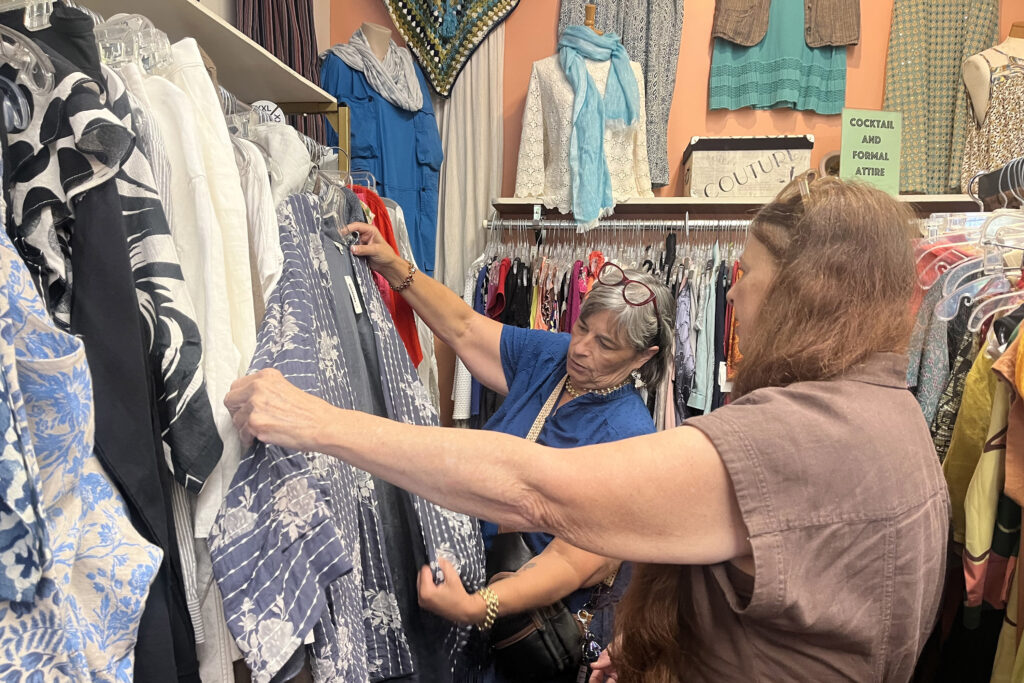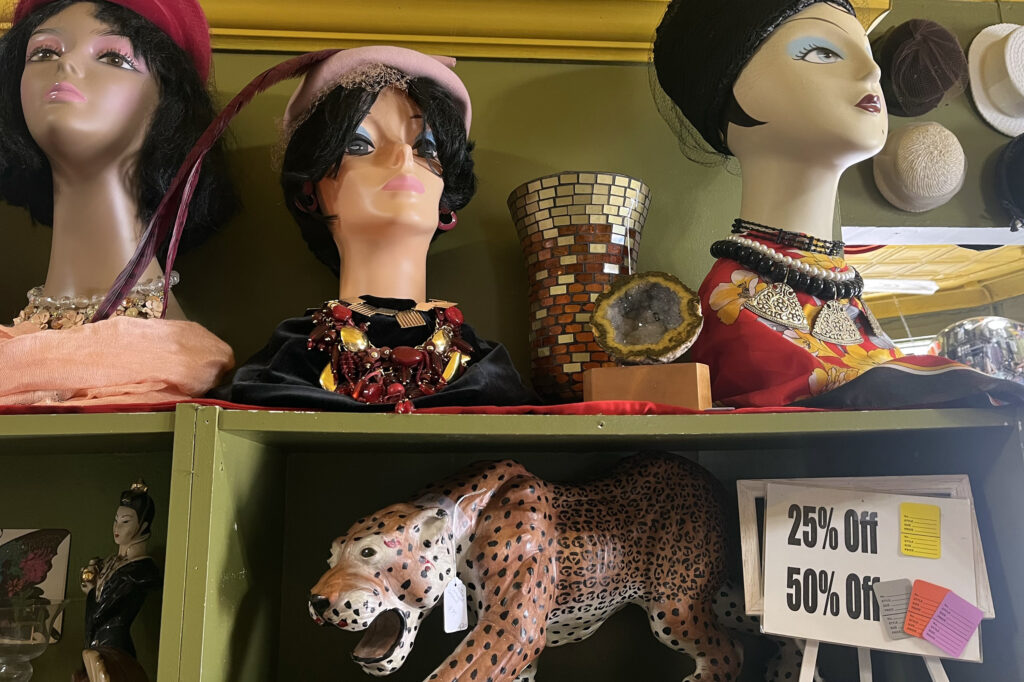National tariffs have local shoppers turning to thrift stores
Tariffs have local shoppers turning to thrift shops
Consignment and second-hand shop owners say they are seeing an uptick in sales during the normally slow summer due in part to the price hikes on imported goods.

Shopping secondhand is meant to be a personal, hands-on experience for Fran Harwood.
That’s what Harwood aimed for when she opened EcoChic Boutique on East Genesee Street in 2010 – a comfortable atmosphere where shoppers can get personalized styling tips while ‘60s classics such as Simon & Garfunkel’s “Mrs. Robinson” ring through the speakers.
Harwood said she’s accustomed to a dip in sales during the summer months because of less foot traffic from Syracuse University students and no major shopping holidays to draw in customers.
Yet this summer, Harwood said she was pleasantly surprised by what she’s seen.
“The past two months have been tremendously good, despite July not typically being a great month for sales in retail,” Harwood said.
Some local residents are shopping more at secondhand stores like Harwood’s to avoid hiked prices on online and firsthand goods because of new tariffs on imported goods set by the Trump Administration earlier this year.
“Everyone talks about how prices are going up and how they’re much more circumspect about what they spend money on,” Harwood said.
The current federal administration imposed tariffs earlier this year that have increased prices on apparel by 0.4% in June, and overall inflation is not expected to slow down anytime soon.
Congress also recently eliminated the de minimis loophole, which allowed goods under $800 from China to avoid tariffs, making online shopping at major e-commerce stores like Shein and Temu more expensive.
Thrifting isn’t a new option for consumers, but a Capitol One report posted in March stated that as of 2024, the U.S. secondhand market is worth an estimated $50 billion, up 30% from 2023.
“It was kind of like a secret if you bought your clothes thrifted when I was growing up,” said Briana Hess, owner of Cluttered Closet Consignment on South Beech Street. “If you saw someone going into Salvation Army you would hide.
“Now, people kind of brag about the deals they get thrifting,”

SU film production junior Laresa Wolfe recently took to thrifting to save money and develop her own unique style.
“In this day and economy, [thrifting] is extremely cheap and sometimes I’m not wanting to give my money back to corporate industries,” Wolfe said.
Chemistry freshman Leidy Roque Quijada said she shops at 3fifteen thrift store in the Marshall Square Mall on University Avenue once a week since recently moving to Syracuse.
Roque Quijada has noticed the increase in online prices due to recent tariffs as well. She turns to local thrifts for her go-to shopping instead of buying online.
“I tend not to shop online, but even when I look at my Amazon cart I’m like, ‘why is this really expensive?’” Roque Quijada said.
Harwood had to reconsider her pricing strategies at EcoChic because of the tariffs’ effect on wholesale goods.
“I do buy some merchandise for the shop online, and I’ve already seen some of those prices go up, which means that I have to raise my prices on those items,” she said. “However, people who might ordinarily shop regular retail might turn to this shop because it’s more economical.”
Also, Hess said some people are selling more of their own items to consignment stores as a side hustle while also shopping secondhand.
“I feel like a lot of people are just really in tune with what’s going on in our country, whether it’s secondhand goods that are affected by tariffs or first-hand goods,” Hess said. “A lot of people’s jobs are even at stake, so there’s more of an uncertain energy in the air.”
